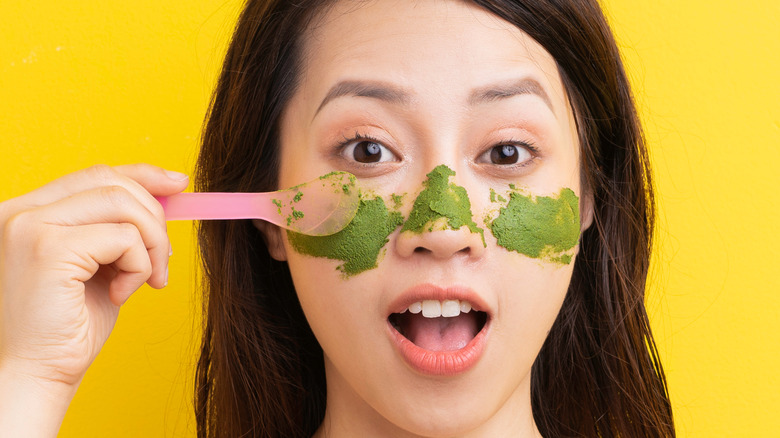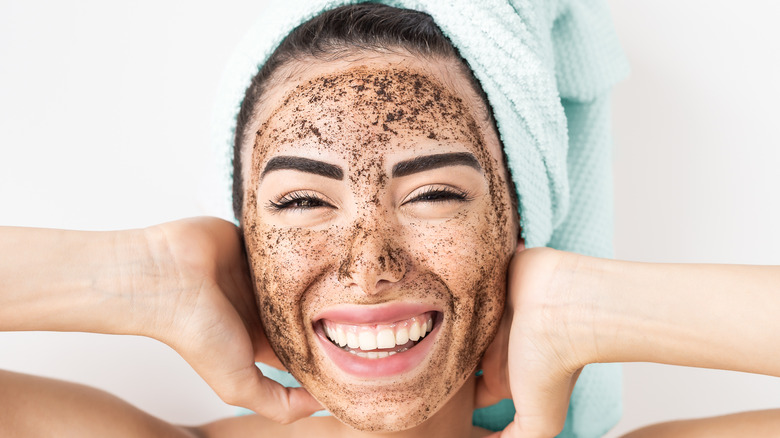Are Skin Exfoliants Bad For The Environment?
It may be strange to find that you could be contributing to environmental degradation in a way — albeit inadvertently. Products such as toothpastes which about 71.1million Americans use on any given day, according to Statista, could contain harmful plastic materials which contaminate water bodies and cause harm to the environment. Body and facial scrubs as well, which are skincare products popular amongst those who exfoliate in order to regularly rejuvenate their skin. Exfoliation is the removal of dead cells from the surface of the skin, per Healthline.
Choosing the right exfoliant for your skin type can actually be a tricky thing. For the most part, people rely on different solutions to achieve this, including chemically-made liquid, gels, and creams. It is in these exfoliants that you find plastic microbeads, a toxic substance that goes into water bodies and could potentially harm sea life and humans alike, per Elements Bath and Body. The danger of microbeads is that they are non-biodegradable, meaning that once it enters into sewage, streams, lakes, they remain there for long and can be ingested by sea life and even humans. To put this in perspective, showering once with body scrub releases 100,000 microbeads into the ocean, per Women's Health. And of these microscopic plastic particles, none may decompose until the ten thousandth year, per The Conversation.
Not all skin exfoliants are bad for the environment
The active substance in the creation of these toxic exfoliants are plastic microbeads, which are usually made from one or more of the following: oxidized polyethylene, polyethylene terephthalate (PET), polymethyl methacrylate (PMMA), nylon and polypropylene, per Women's Health. So, to be sure that your exfoliant is not injurious to the environment in any way, just keep off any face scrub, body scrub, toothpaste, or another product that has any of these listed chemicals.
As a healthy alternative, you should start using exfoliants that are completely organic. You can either purchase this type of exfoliants or should you choose to whip up a facial scrub at home, you can just source ingredients for yourself. If you ever choose to go the DIY route, you'll need baking soda, cinnamon, and fine sugar, amongst other things, per Healthline.
You can also choose a healthier, more environment-friendly version of chemical exfoliants. These contain microbeads, alright, but not the plastic type, per Leslie Bauman, M.D., a cosmetic dermatologist. The microbeads you find here are made from cellulose, not plastic. Cellulose is made from plants and is definitely biodegradable.

